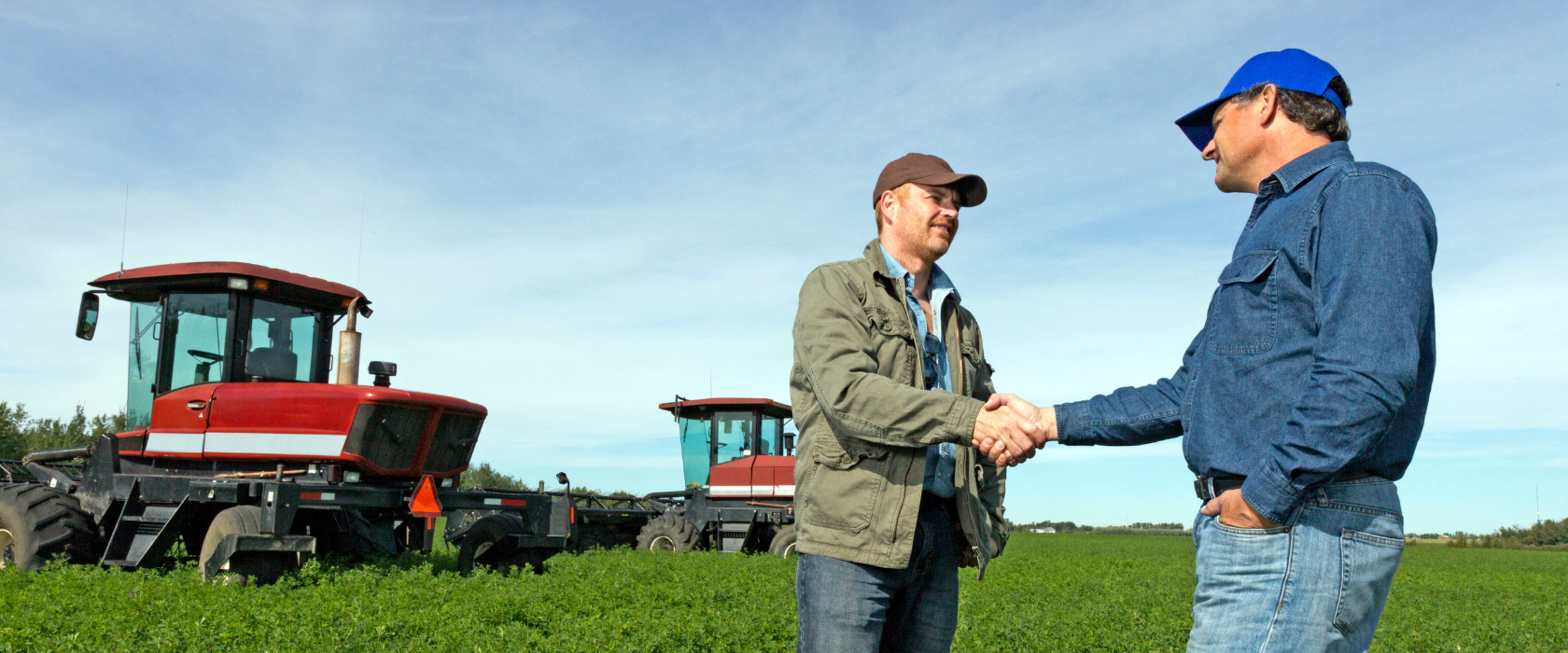By Matt Stelling | Vice President | Plainview Branch
In today’s modern agricultural landscape, farmers face a multitude of challenges. From fluctuating commodity prices to unpredictable weather patterns, they need financial partners who understand their needs and are invested in their success.
While big commercial banks may seem like the obvious choice, there is a compelling case to be made for farmers to choose a community bank. Community banks, with our local focus and personalized approach, offer a range of benefits that can make a significant difference in the lives of farmers. We’ll explore why farmers should consider community banks as their financial allies.
Local Expertise:
Community banks have a deep understanding of the local farming industry and its intricacies. We are intimately familiar with the challenges and opportunities specific to the region. This local expertise allows us to provide tailored financial solutions that align with the unique needs of farmers. Whether it’s securing agricultural loans, managing cash flow, or navigating the complexities of government programs, community banks offer specialized knowledge that can be instrumental in helping farmers make financial decisions.
Personalized Relationships:
One of the most significant advantages of community banks is our commitment to building personalized relationships with their customers. Unlike large commercial banks, community banks prioritize individuals and go the extra mile to understand the circumstances and goals of their farming clients. We take the time to listen, offer customized advice, and provide ongoing support throughout the farmer’s journey. This personal touch fosters trust, loyalty, and a sense of partnership, which can be invaluable in the ever-changing agricultural landscape.
Local Economic Development:
When farmers choose a community bank, they contribute to the growth and development of their local economy. Community banks, like Midwest Bank, reinvest a substantial portion of their deposits into the communities they serve. By banking locally, farmers help support local businesses, create jobs, and contribute to the overall economic stability of their region. This symbiotic relationship ensures that farmers have a stake in the success of their community, fostering a sense of belonging and shared prosperity.
Quick Decision-Making and Flexibility:
Community banks are known for their agility and nimbleness in decision-making. Unlike their larger counterparts, which often operate under a bureaucratic framework, we can make swift decisions based on our deep understanding of the local market. Farmers can benefit from quicker loan approvals, efficient processing, and a more streamlined experience. Additionally, community banks are often more willing to be flexible and accommodate farmers’ unique circumstances, offering tailored financial solutions and repayment plans that fit their specific needs.
Commitment to Social Responsibility:
Community banks are deeply committed to the social and environmental well-being of their communities. Farmers who choose a community bank align themselves with an institution that shares their values. We prioritize sustainability, responsible lending practices, and community development initiatives. By banking with a community bank, you can be confident that our financial institution is dedicated to the betterment of society and actively supports initiatives that benefit the agricultural industry.
In an era of ever-increasing consolidation in the banking industry, community banks stand out as trusted partners for farmers. Our local expertise, personalized relationships, commitment to economic development, quick decision-making, and social responsibility make us the ideal choice for farmers who value a supportive and mutually beneficial banking relationship. By choosing a community bank, as a farmer, you can access a range of benefits that go beyond mere financial transactions and find a partner who is genuinely invested in their success. The power of community banking lies in its ability to foster growth, resilience, and a sense of belonging within the agricultural community.

